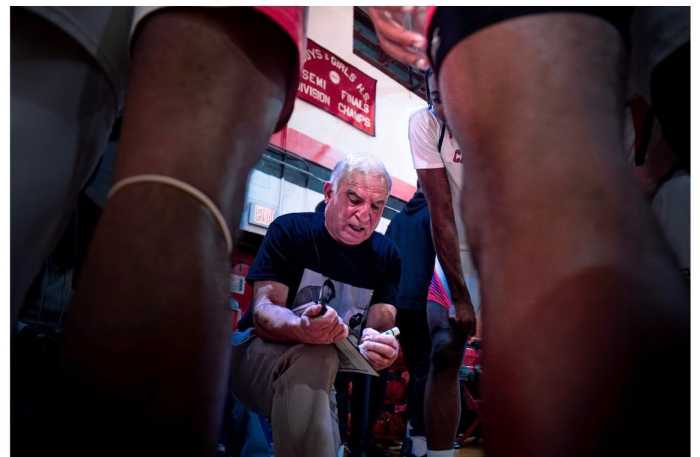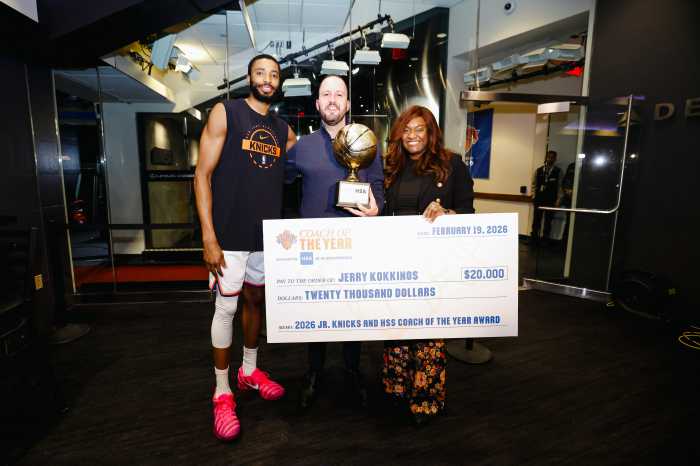March Trial Decides Wilpons’ Fate
(AP) With spring training just weeks away, nobody’s working harder to prepare for the New York Mets’ future than their lawyers.
A March trial may decide how much the team owners’ disastrous investment in the fraudulent business of imprisoned financier Bernard Madoff will cost the club.
“It’s going to garner tons of attention and comes at a horrible time for the Mets. It’s not a great way to start the season,” said Neal H. Levin, who heads the fraud team at the Chicago law firm Freeborn & Peters and is not involved in the case.
A court-appointed trustee is trying to recover money for investors in the massive Ponzi scheme in which 4,900 investors were told their $20 billion investment had grown to $68 billion by November 2008. But when investigators finally reached him, only a few hundred million dollars actually remained in Madoff’s accounts. Madoff admitted the fraud and is serving a 150-year sentence.
To the trustee, Irving Picard, the Mets owners were winners in Madoff’s multi-decade fiasco, pocketing hundreds of millions of dollars in fictitious profits.
Picard has demanded more than $1 billion for investors, saying Mets co-owners Fred Wilpon and Saul Katz either knew or should have known Madoff was up to no good. The two men have steadfastly denied any wrongdoing, saying they were victims themselves.
After the lawsuit was filed, the Mets announced they were considering selling up to 25 percent of the franchise because of “uncertainty” caused by the lawsuit. Now, the need for such a sizable infusion of cash might be diminishing. The Mets have shrunk their payroll and the legal prospects seem to have improved, as two decisions by the presiding judge may have limited the chances that Madoff’s downfall will doom the team’s finances.
In the first, U.S. District Judge Jed Rakoff limited what the team’s owners might have to pay to other Madoff investors to $386 million. He also made it possible the payout won’t top more than $83.3 million, saying that the potential penalty would be limited to that amount unless Picard can prove at the trial that the Mets owners “willfully blinded” themselves to Madoff’s fraud.
In a second ruling last Tuesday, Jan. 17, Rakoff blocked Picard from appealing the earlier ruling until after the trial, despite claims that the judge’s reasoning will affect the calculation for the entire recovery effort, possibly costing jilted Madoff investors billions of dollars.
The Mets declined to comment last Friday, Jan. 20, about the coming trial. A spokeswoman for Picard said his lawyers also would not comment because the litigation was ongoing.
This week, lawyers will submit written arguments to Rakoff on their pretrial requests. Rulings will define the perimeters of the trial, set to start Mar. 19, and perhaps clear the way for former New York Gov. Mario Cuomo to step to the plate in his role as mediator to try to broker a settlement.
The likelihood of a deal seemed to diminish, though, when Picard and his lawyers concluded that Rakoff’s reasoning might be applied to other cases, costing billions of dollars for investors.
So far, about $325 million has been distributed to the holders of 1,230 investor accounts, in addition to $798 million disbursed as a result of an industry fund that reimburses victims of fraud up to $500,000. Agreements so far resulted in the recovery of about $8.6 billion and the recoveries exceed prior restitution efforts related to Ponzi schemes in both dollar value and percentage of stolen funds recovered, Picard’s office reported. Legal appeals were delaying disbursement of the rest of the money to investors.
Levin said there is a trend in courts that could work against the Mets, with the legal term “willful blindness” being loosely defined as having a level of knowledge that exists somewhere between actual knowledge and something that should have been known.
“As a baseball fan, I’m disappointed that one of baseball’s prize franchises is under such a cloud,” said Robert Berliner, an attorney who runs the Berliner Group mediation service in Chicago and is not in- volved in the case. “The Wilpons dealt with their childhood friend and he turned out to be a crook. It’s hard for me to see that that makes them accessories.”
He said it was too early to rule out a settlement.
“After the narrowing of the issues by the judge, I thought they ought to be in a position to settle it. I was a little surprised that it hasn’t happened yet,” he added. “There are a lot of cases that settle on the courthouse steps on the day of trial and this could be one of them.”

































